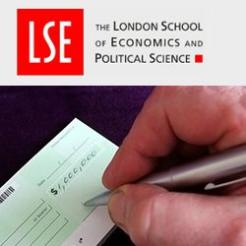The director of an ethics training consultancy has encouraged charities to have a good model for checking that a donor is a ‘fit and proper person’, in light of Lord Woolf’s damning inquiry into the London School of Economics' (LSE) donation from Saif Gaddafi's Foundation.
Bernard Ross, director of the Management Centre, made the statement in response to Lord Woolf's report, released yesterday, criticising LSE's procedures for vetting donations which saw the university accepting a donation of £1.5m from Saif Gaddafi's Gaddafi International Charity and Development Foundation.
Lord Woolf complained that the source of money for the donation was never established by LSE.
“If what the LSE was told by Saif about the source of the donation is taken at face value, the due diligence obtained on the gift should have raised real concerns,” he said.
He continued: “On the available information the source of the donation could have been payments made to gain Saif’s favour. The funding was said to be coming from payments made to Saif’s Foundation by foreign contractors operating in Libya, one of which, according to the due diligence available at the time, had a prior conviction for bribery.
“Why would foreign companies operating in Libya want to donate to the LSE through the conduit of Saif’s Foundation?”
Lord Woolf recommended that LSE adopt an up-to-date policy on donations, as part of its code on ethical and reputational risk.
This donation policy, he said, should include procedures for the scrutiny of proposed donations with clear lines of responsibility and guidelines on the appropriate relationship between the LSE and a donor.
Ross recommends that charities read the report:
“LSE's reputation has been hugely damaged by this - especially internationally. And the same thing has happened to other organisations who have been similarly caught in the past - for example Vilar and the Royal Opera House," he said.
“We, sadly, don't trust many people these days - politicians, sportspeople, journalists, bankers… so charities are one of the few groups who still score high on credibility. We need to protect that as reputation for the whole sector.
“Part of stewardship is checking that the donor is a 'fit and proper person' and that the money has been properly obtained. Unicef have some outstanding guidelines on this and these should be a model for others. This report needs to be widely read.”
Adrian Beney, a fundraising consultant at More Partnerships, who today has written a blog on the issue, adds that the issue of who to accept donations from can be grey:
"I know of a development charity which does not accept donations from arms manufacturers except in serious emergency or a humanitarian disaster, where they accept donations from anybody. It’s the dilemma of turning down money which could save lives."
He added that the LSE had taken the donation at a time when then-Prime Minister Tony Blair had gone to Libya, and the Foreign Office was encouraging ties between the UK and the country.









